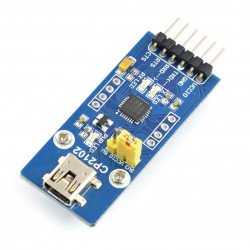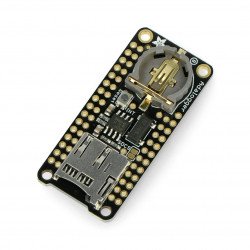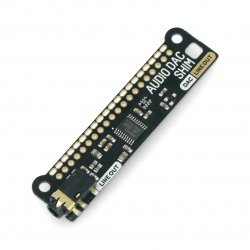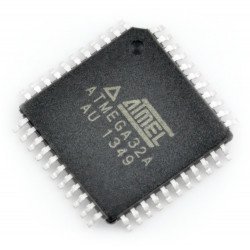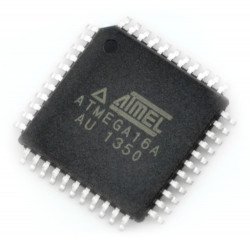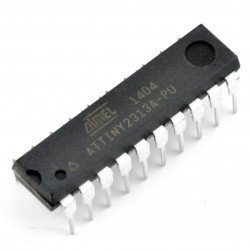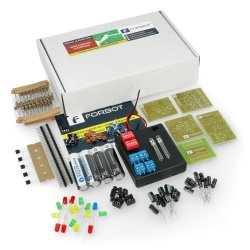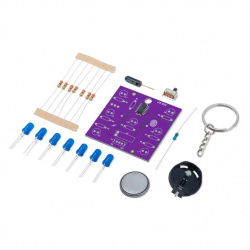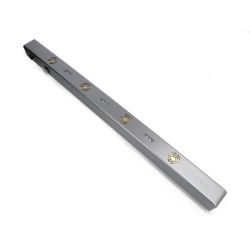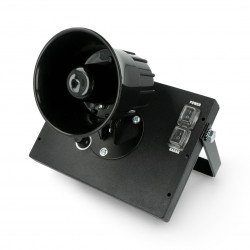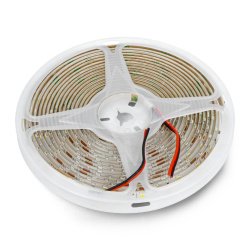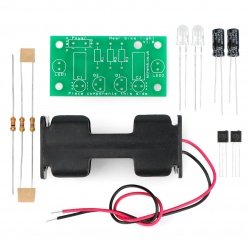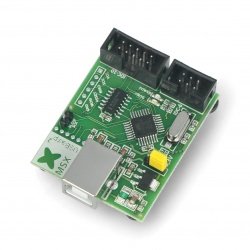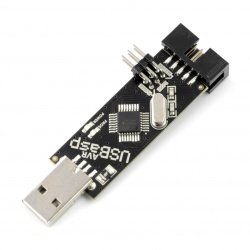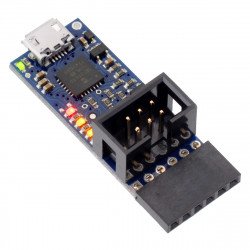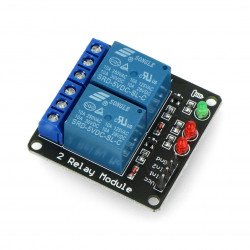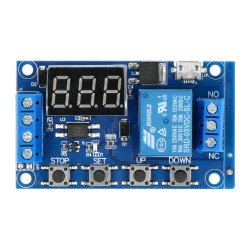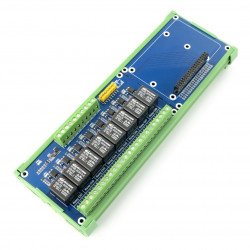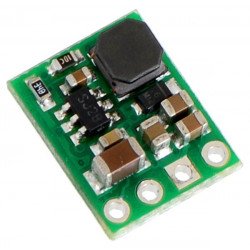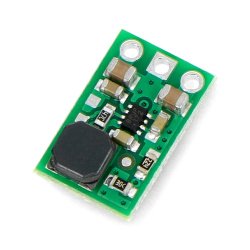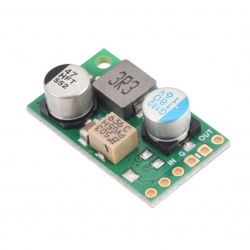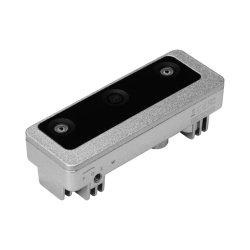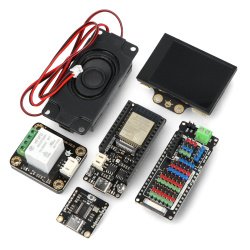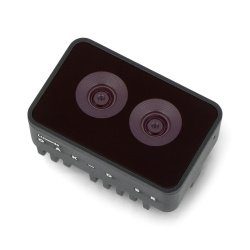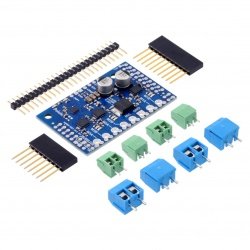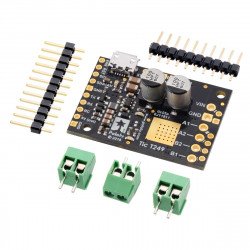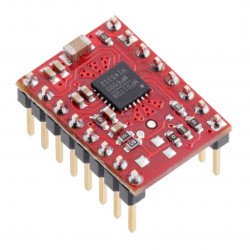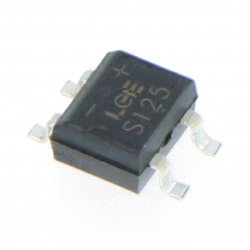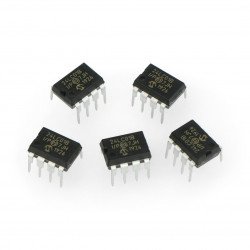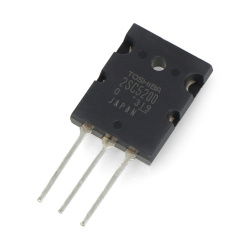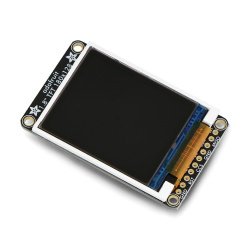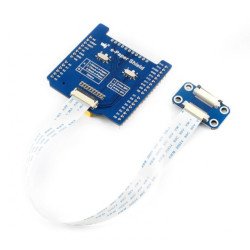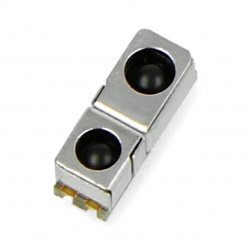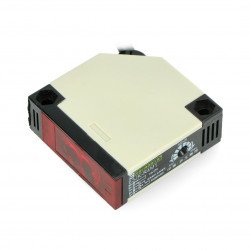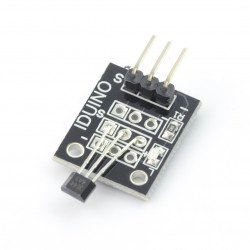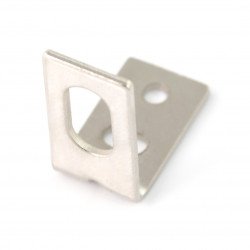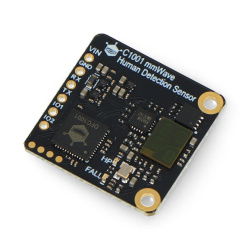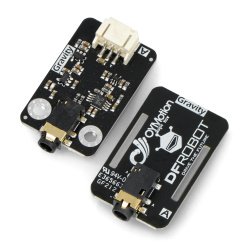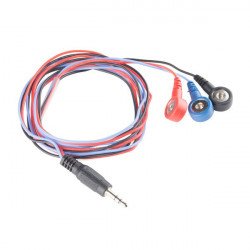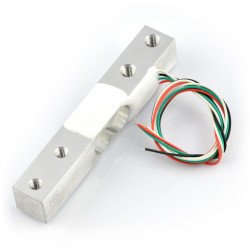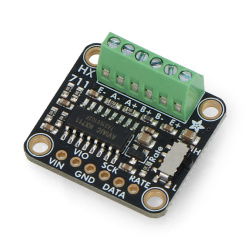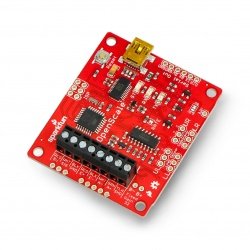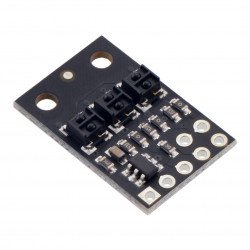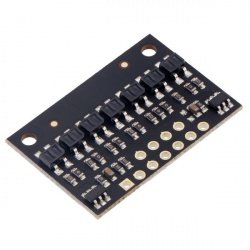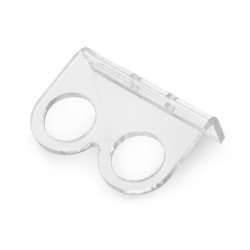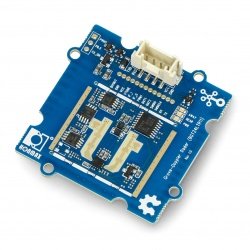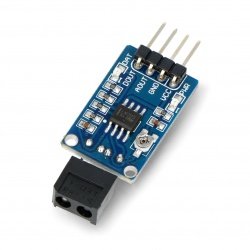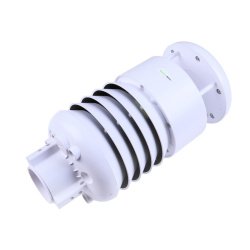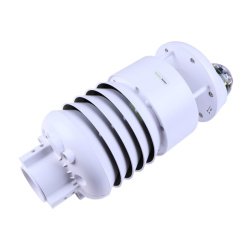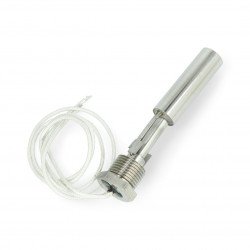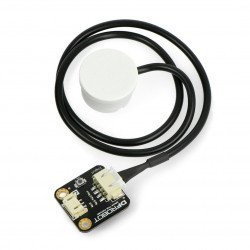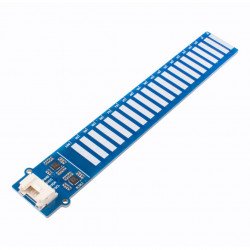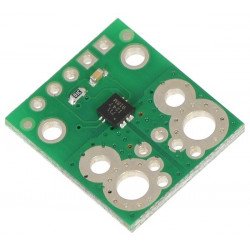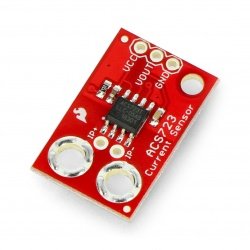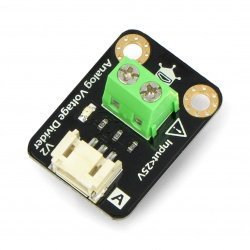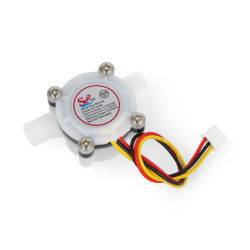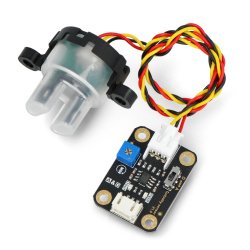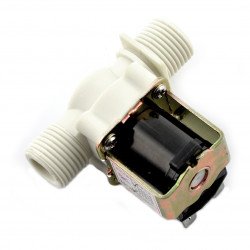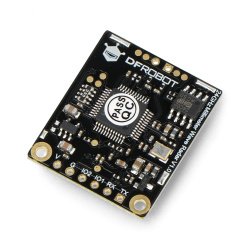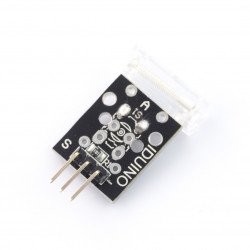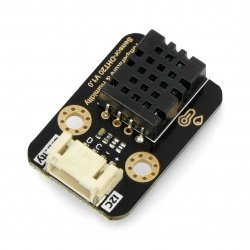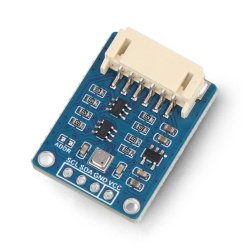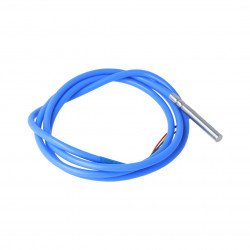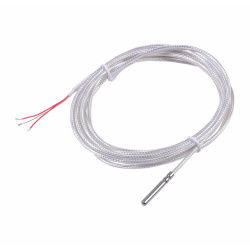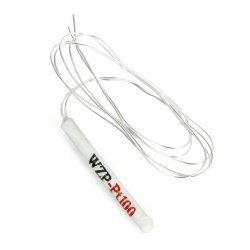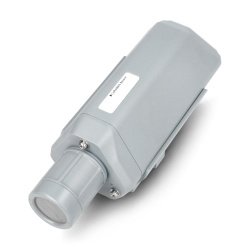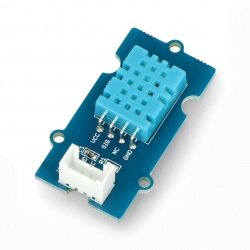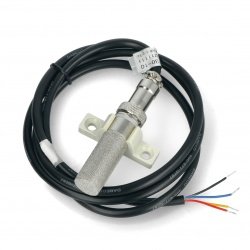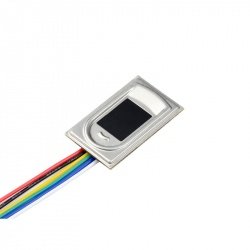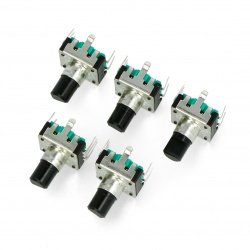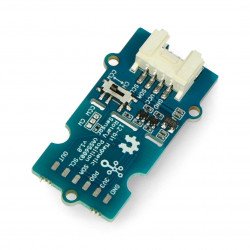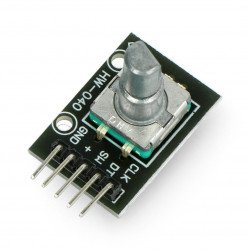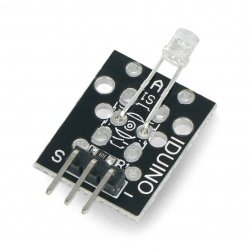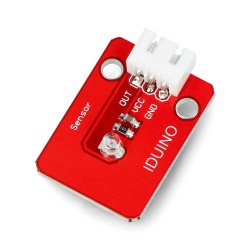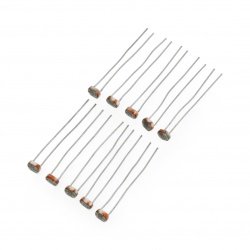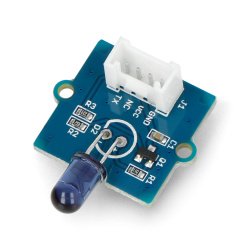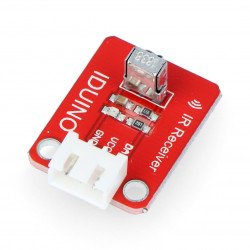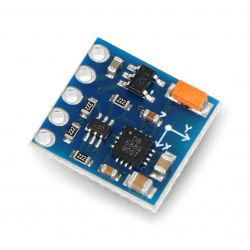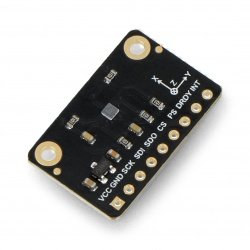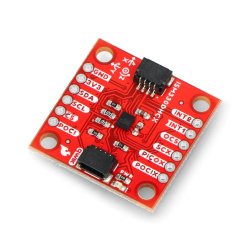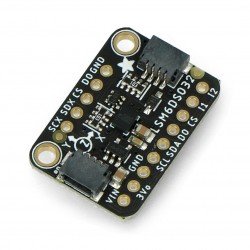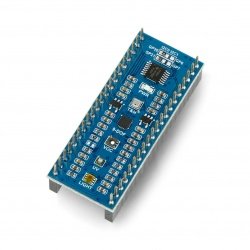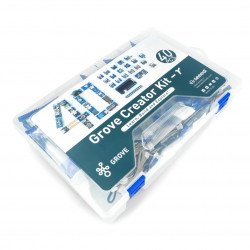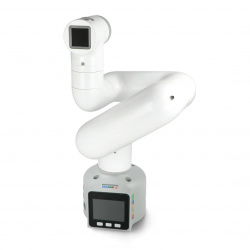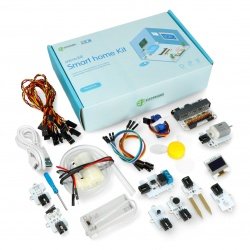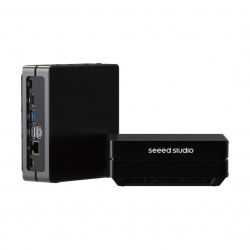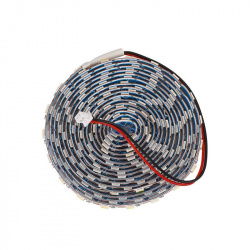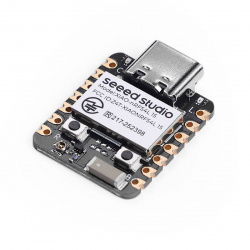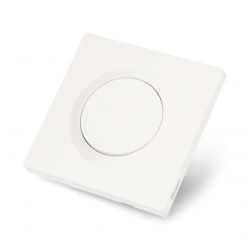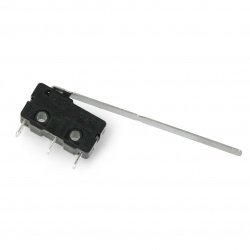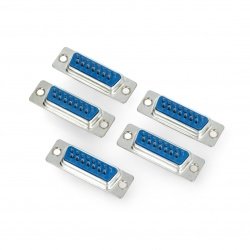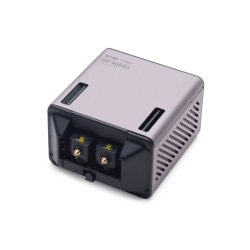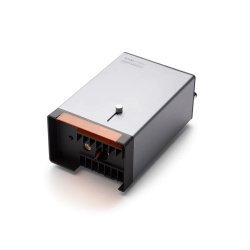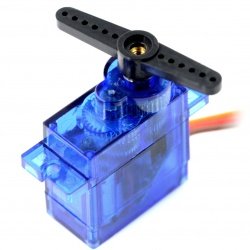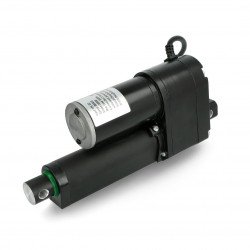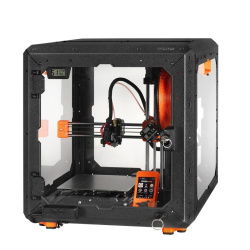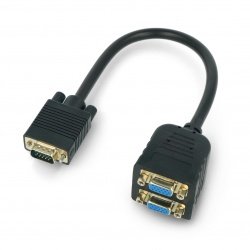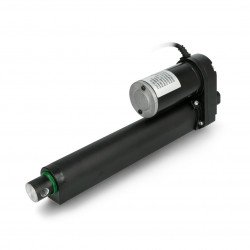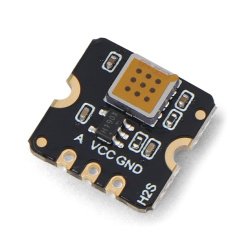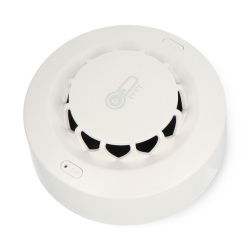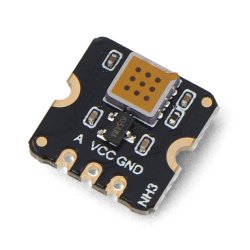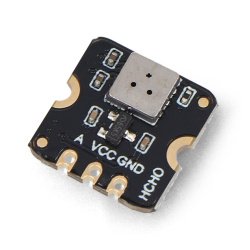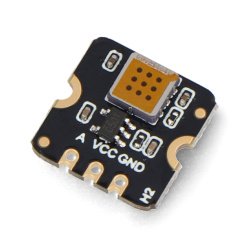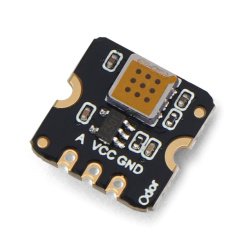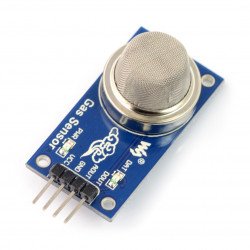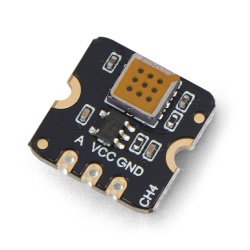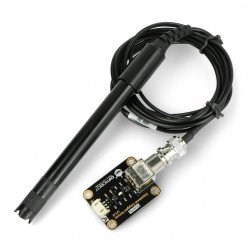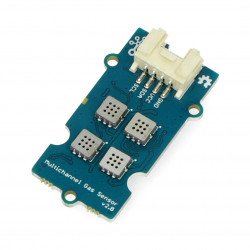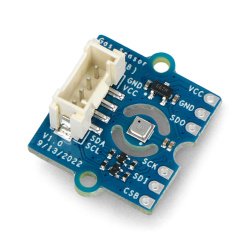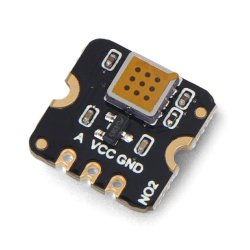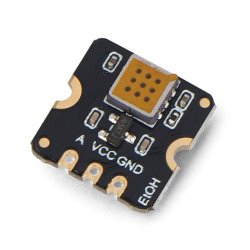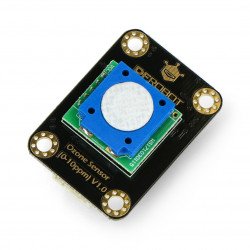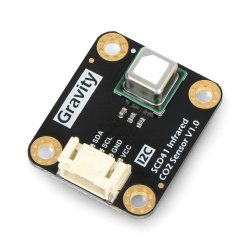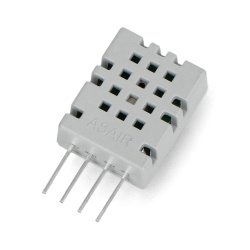The dynamic development of electronics means that the market offers more and more budget solutions for replacements of ready-made measuring devices. The price of such devices often exceeds the financial capabilities of many enthusiasts of electronic projects.
Gas sensors
Carbon monoxide and flammable gases sensor MQ-9 - semiconductor - blue module
The sensor detects the concentration of CO (carbon monoxide) and flammable gases. It has the goldpin pins, pitch of 2,54 mm. It is powered with the voltage of 5 V. It has...Fermion - hydrogen sulfide H2S sensor - MEMS - 0,5-50ppm - DFRobot SEN0568
A sensor manufactured by DFRobot , designed to measure the concentration of hydrogen sulfide H2S in the air. The measurement range is from 0.5 ppm to 50 ppm . Moreover,...Tuya - smart smoke detector with WiFi temperature and humidity measurement - RTX WSSTH3
The smoke sensor with temperature and humidity measurement is a device that provides effective smoke detection and monitoring of atmospheric conditions in your home. Thanks to...Smoke and flammable gas sensor MQ-2 - semiconductor - black
Module with smoke detector and flammable gas MQ-2 with the goldpin pins, pitch of 2.54 mm. It is powered with the voltage of 5 V. It has digital and analog output, making it...Alcohol sensor MQ-3 - semiconductor - blue module
Module with the alcohol sensor MQ-3 with the goldpin pins, pitch of 2.54 mm. It is powered with the voltage of 5 V. It has digital and analog output, making it compatible with...Fermion - NH3 ammonia sensor - MEMS - 1-300ppm - DFRobot SEN0567
A sensor manufactured by DFRobot, enabling qualitative detection of NH3 ammonia . The detection range is from 1 ppm to 300 ppm . Additionally, the sensor is characterized by...Fermion - Formaldehyde sensor - HCHO - MEMS - 0-3ppm - DFRobot SEN0563
Sensor from DFRobot enabling qualitative detection of formaldehyde - HCHO . The detection range is from 0 ppm to 3 ppm . Additionally, the sensor is characterized by low...Grove - VOC and CO2 gas sensor SGP30 - semiconductor MOS - Seeedstudio 101020512
The SGP30 sensor module is used to detect volatile organic compounds (VOC) and carbon dioxide (CO2). It communicates through the I2C interface. On the board there is a...Fermion - H2 hydrogen sensor - MEMS - 0,1-1000ppm - DFRobot SEN0572
A compact MEMS sensor from DFRobot that allows you to measure the concentration of hydrogen H2 . The detection range is from 0.1 ppm to 1000 ppm . Additionally, the sensor...Smoke and flammable gas sensor MQ-2 - semiconductor - blue module
Module with smoke and flammable gas MQ-2 detector with the goldpin pins, pitch of 2.54 mm. It is powered with the voltage of 5 V. It has digital and analog output, making it...Fermion - Odor Smell Gas sensor - MEMS - 0,5-50ppm - DFRobot SEN0571
A sensor from DFRobot that enables qualitative detection of odorous compounds. The detection range is from 0.5 ppm to 50 ppm . The module can be used when monitoring dangerous...MQ-135 alcohol, benzen, ammonia sensor module - semiconductor - Waveshare 9528
Module with sensor MQ-135 detecting benzene, alcohol and smoke. It is powered with the voltage from 2.5 V to 5 V. It has digital and analog output, making it compatible with...Fermion - CH4 methane sensor - MEMS - 1-10000ppm - DFRobot SEN0565
A compact sensor manufactured by DFRobot that allows you to measure the concentration of methane CH4. The detection range is from 1 ppm to 10,000 ppm . Methane has a...DFRobot Gravity - analog X dissolved oxygen sensor - SEN0237-A
Dissolved oxygen analog sensor compatible with Arduino. The module measures the concentration of dissolved oxygen in the water to determine its quality. It can be used, for...Grove - multichannel gas sensor - Seeedstudio 101020820
Plate with four independent gas sensors: GM-102B, GM-302B, GM-502B, GM-702B , which can detect various gases such as carbon monoxide, nitrogen dioxide, ethyl alcohol, organic...Grove BME688 - I2C 4in1 AI sensor - gas, pressure, temperature and humidity - Seeedstudio 114992989
Grove series module equipped with BME688 sensor. It is the first sensor equipped with artificial intelligence (AI) that measures gas, pressure, temperature and humidity with...Fermion - NO2 nitrogen dioxide sensor - MEMS - 0,1-10ppm - DFRobot SEN0574
A sensor from DFRobot designed to detect the concentration of nitrogen dioxide NO2 and other pollutants present in the room. The module uses MEMS technology, which not...Fermion - EtOH ethanol sensor - MEMS - 1-500ppm - DFRobot SEN0569
A sensor manufactured by DFRobot designed to detect ethanol EtOH present in the air. The module uses MEMS technology, which not only allows for obtaining highly precise...MQ-7 carbon monoxide sensor - semiconductor
Carbon monoxide sensor with analog output.MQ-135 alcohol, benzine, ammonia sensor - semiconductor
Module with sensor MQ-135 detecting benzene, alcohol and smoke . It is powered with the voltage from 2.5 V to 5 V. It has digital and analog output, making it compatible with...Gravity - ozone sensor I2C - electrochemical - DFRobot SEN0321
Electrochemical ozone sensor for accurate O3 concentration measurement in the environment. Its measuring range is from 0 ppm to 10 ppm. It communicates via the I2C...Gravity - CO2 carbon dioxide sensor - SCD41 - IR - I2C - 400-5000 ppm - DFRobot SEN0536
CO2 carbon dioxide sensor from DFRobot equipped with the SCD41 system from Sensirion . It is based on the photoacoustic NDIR detection principle and Sensirion's patented...TVOC gas sensor - MOX - AGS02MA I2C - Adafruit 5593
A module from Adafruit in the form of a TVOC gas sensor . It was equipped with the AGS02MA system and a small MOX sensor - a heated metal oxide changes resistance based on...- Reduced price
- SPECIAL OFFERS
See also
- Resistance sensors
- Door sensors
- Piezoelectric sensors
- RPM sensors
- Twilight sensors
- Tilt sensors
- Accelerometers
- Inductive sensors
- Hall effect sensors
- Oxygen sensors
- Optical sensors
- Alarm sensors
- 9DoF IMU sensors
- Pressure sensors
- Air quality sensors
- Sound sensors
- Gesture sensors
- Sensors of light and color
- Limit switches
- Magnetic sensors
- Medical sensors
- Pressure sensors
- Sensors odbiciowe
- Distance sensors
- Inductive contactless sensors
- Weather sensors
- Liquid level sensors
- Current sensors
- Flow sensors
- Motion sensors
- Temperature sensors
- PT100 temperature probes
- Humidity sensors
- Fingerprint readers
- Encoders
- Photoresistors
- Phototransistors
- IR receivers
- Magnetometers
- Gyros
- Sensor sets
- Grove modules
- Gravity modules
MQ series gas sensors
For both hobbyists and more advanced designers, we recommend the MQ series of sensors in a round housing, with a standardized pin arrangement (6 pins). The MQ series gas sensors have small dimensions - the head height is approximately 13 mm and the diameter is approximately 20 mm. We have also prepared ready-made modules for you, in which the sensors are built on a printed circuit board measuring approximately 40 x 20 mm with pins in the form of a goldpin connector with a standard 2.54 mm pitch.
Gas sensors – additional information
The sensors require a power supply in the range of 2.5 V to 5 V. The sensors we offer include MQ-2 smoke, propane-butane (LPG) and hydrogen sensors, MQ-3 alcohol sensors, MQ-4 methane sensors, and propane-butane sensors. MQ-5, MQ-7 carbon monoxide sensors, MQ-8 hydrogen sensors, MQ-9 carbon monoxide sensor, MQ-135 alcohol, gasoline and ammonia sensors. Propane butane is a mixture of gases used to power cars with LPG installations. For this reason, it is worth installing this type of sensor, e.g. with an additional sound signal, in the garage. In addition, carbon monoxide and gas sensors should be installed in buildings with gas installations
In turn, a carbon monoxide detector should be installed, among others: houses heated with coal or wood. A carbon monoxide detector is the basic and most effective protection against carbon monoxide poisoning.
Thanks to analog and digital outputs, MQ sensors are perfect for cooperation with well-known development kits such as Arduino or Raspberry Pi . On our website you will also find DFRobot IO Expansion Shield modules.
TGS series gas sensors
A similar solution to the MQ series sensors are the TGS series sensors. They come in a small, standard TO-5 type housing with a diameter of approximately 9 mm and a head height of approximately 8 mm. TGS sensors are characterized by high sensitivity, low power consumption and long service life.
The sensors we offer include TGS813 explosive gas sensors. A gas explosion is extremely dangerous because it is accompanied by very high temperatures. Additionally, TGS2610 propane-butane sensors, TGS2611 methane sensors, TGS2600 air purity sensors, and TGS2603 unpleasant odor sensors are available.
Choose ready-made solutions - natural gas sensor and other models
How does a natural gas sensor work? When the device detects the presence of natural gas in the air that exceeds the limit value for a certain period of time, it activates an alarm. Natural gas
Botland offers you ready-made devices such as natural gas sensors, methane and propane-butane sensors, carbon monoxide (carbon monoxide sensors) and smoke detectors. Depending on your needs, you can purchase sensors powered by mains or batteries. Natural gas (liquefied natural gas (LNG)) is increasingly used to power motor vehicles. For this reason, it should be installed in all places (e.g. parking lots and garages) where vehicles of this type are temporarily or permanently kept (parked).
We recommend an air quality sensor with an LCD display, which, in addition to displaying the measured content of PM 2.5 and PM 10 particulate matter, changes the backlight color to inform us about the air quality. If you are interested in ready-to-use alcohol sensors, our offer includes disposable breathalyzers, semiconductor and electrochemical breathalyzers.
Gas sensors - FAQ
The concept of a gas sensor covers a wide range of sensors for various applications, and the type of substance detected depends on the design of the sensor and the chemical reagents used in it. Popular home gas detectors are typically designed to detect methane (the main component of natural gas), LPG, or carbon monoxide (carbon monoxide).
First, open the windows to ventilate a potential gas leak and notify tenants and neighbors of the danger. The next step is to evacuate people in the danger zone and call for help (number 112). If, after the arrival of specialists, it turns out that the alarm was false, it is worth contacting the sensor manufacturer or replacing the device with a new one.
Natural gas and carbon monoxide sensors should be mounted at a low height under the ceiling (approx. 15-30 cm from the ceiling for a natural gas sensor or 150-200 cm above the ground for a carbon monoxide sensor ). It is important that the sensor is placed no further than 6 m from a potential source of gas leakage (e.g. a stove or stove).
The basic rule when choosing a carbon monoxide and gas sensor is to pay attention to safety certificates - in order for the detector to perform its role correctly, you should choose only proven solutions from well-known manufacturers who take care of all necessary technical tests and approval of the product for marketing.
Propane-butane is a heavier gas than air, so it accumulates above the floor. For this reason, the LPG sensor should be mounted approximately 15-30 cm above the ground surface, and there should be no obstacles (objects, furniture, structural elements, etc.) between the sensor and the potential source of gas leakage.
The price of a gas sensor depends primarily on its functionality. The simplest detectors, with - in addition to the actual sensor - also a miniature alarm siren, usually cost around several dozen zlotys, while "intelligent" versions with WiFi connectivity cost around PLN 120-150.
Most gas detectors have a built-in button that allows you to check the operation of the acoustic and optical alarm. However, such a simple test does not verify the efficiency of the sensor itself - therefore, the test should be performed using a special tank with test gas , following the instructions of the tank manufacturer.
The natural gas sensor should be mounted on a wall or other vertical element of the building structure, at a height ranging from 15 to 30 cm from the ceiling. Importantly, the sensor should be as close as possible to the gas source (e.g. stove, stove or gas cylinder) and cannot be obscured by other objects. In most cases, the detector is mounted to the ground using screws and mounting pins.
When you hear the sensor signal, be sure to open the windows and notify your roommates and neighbors of the danger and start their evacuation. Then you need to call for help by calling 112. If the alarm turns out to be false, it is worth replacing the gas sensor with a new one.
Natural gas sensors (due to its low density) should be installed approximately 15-30 cm below the ceiling surface. Carbon monoxide detectors should be installed 150-200 cm above the floor (i.e. approximately at the height of a standing person's face).
If natural gas is used in the house (e.g. to power a stove, oven or central heating furnace), it is necessary to use a gas detector near the installation site of the device. You should choose only proven sensors with appropriate certificates, e.g. Lanberg SR-1007. It is also worth purchasing a branded carbon monoxide detector.
Gas sensors should be structurally resistant to moisture , but should be avoided in places where they may be exposed to large amounts of water vapor or oil vapors (e.g. directly above the stove).
Although carbon monoxide (carbon monoxide) is also a gaseous substance, the popular term "gas sensor" most often refers to devices that detect natural gas (mainly methane) or LPG - so it is worth purchasing an additional, separate carbon monoxide sensor .
The sensitivity range of a given device depends on the sensor used in it - in each case, check the technical documentation of the detector which substances it is sensitive to (there are devices that detect only one of these gases or both).
A natural gas sensor should be placed in every room where there is a real risk of gas leakage in the event of a failure - for this reason, it is recommended to install gas detectors primarily in kitchens equipped with gas stoves or ovens, as well as bathrooms or other rooms with stoves. or central heating boilers.
The natural gas sensor should be mounted approximately 15-30 cm below the ceiling, and in the case of LPG detectors - 15-30 cm above the floor surface. Carbon monoxide detectors should be installed at a height of approximately 150-200 cm above the floor.
Each electrochemical sensor has a certain sensitivity not only to the main gas it is designed to detect (e.g. methane or carbon monoxide), but also (though much weaker) reacts to other vapors. Therefore, it is worth checking the characteristics of a given device - manufacturers usually provide appropriate information in the technical data of the product.
Branded natural gas, carbon monoxide and LPG sensors can be found in the Botland store offer - in addition to simple sensors with a built-in acoustic alarm, we also have advanced detectors with radio communication , intended for smart home systems.
The gas temperature sensor is used in automotive installations to correct the injector control in terms of the instantaneous gas density. Typically, a classic thermoresistor is used in the construction of this type of sensors.
In an apartment equipped with a gas installation, at least one natural gas sensor should be installed (e.g. in the place of installation of the "receiving" device, e.g. a stove or a central heating furnace), but it is also worth remembering about a carbon monoxide sensor, because this deadly carbon monoxide is a product of incomplete combustion organic gases. Smoke detectors , capable of detecting fire early, are also often chosen.






















































































